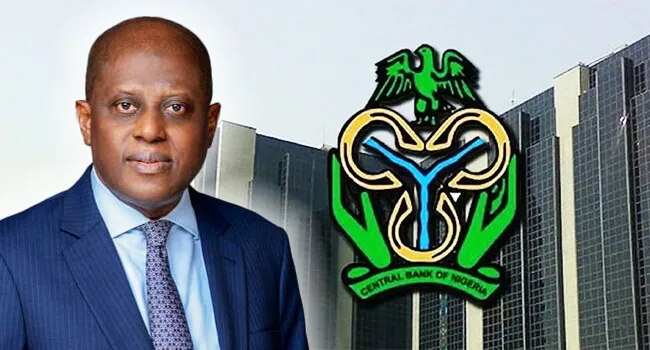Why CBN raised lending rate after MPC meeting- Cardoso

Why CBN raised lending rate after MPC meeting- Cardoso
Nike Popoola
The Central Bank of Nigeria (CBN), on Tuesday, raised the Monetary Policy Rate (MPR) by 50 basis points to 26.75 per cent from 26.25 per cent.
The Governor, Central Bank of Nigeria, Olayemi Cardoso, made the announcement after the Monetary Policy Committee (MPC) of the CBN held its 296th meeting on the 22nd and 23rd of July 2024, to review recent economic and financial developments as well as assess risks to the outlook.
At the meeting which was attended by eleven members, he said, the MPC decided to, “Raise the MPR by 50 basis points to 26.75 per cent from 26.25 per cent; Adjust the asymmetric corridor around the MPR to +500/-100 from +100/- 300 basis points; Retain the Cash Reserve Ratio of Deposit Money Banks at 45.00 per cent and Merchant Banks at 14 per cent; and Retain the Liquidity Ratio at 30.00 per cent.”
Cardoso mentioned efforts to control inflation and address food supply deficit among other reasons.
Speaking on the considerations, he said, “The Committee was mindful of the effect of rising prices on households and businesses and expressed its resolve to take necessary measures to bring inflation under control. It re-emphasized its commitment to the Bank’s price stability mandate and remained optimistic that despite the June 2024 uptick in headline inflation, prices are expected to moderate in the near term.
“This is hinged on monetary policy gaining further traction, in addition to recent measures by the fiscal authority to address food inflation. In its consideration, the Committee noted the persistence of food inflation, which continues to undermine price stability. It was observed that while monetary policy has been moderating aggregate demand, rising food and energy costs continue to exert upward pressure on price development. “The prevailing insecurity in food producing areas and high cost of transportation of farm produce are also contributing to this trend. Members were, therefore, not oblivious to the urgent benefit of addressing these challenges as it will offer a sustainable solution to the persistent pressure on food prices.
“Also noted in its consideration, is the increasing activities of middlemen who often finance smallholder farmers, aggregate, hoard and move farm produce across the border to neighbouring countries.
“The Committee suggested the need to put in check such activities in order to address the food supply deficit in the Nigerian market to moderate food prices. The MPC, therefore, resolved to sustain collaboration with the fiscal authority to ensure that inflationary pressure is subdued.”
In addition, he said, the Committee expressed optimism with the recent stop gap measures by the Federal Government to bridge the food supply deficit.
In particular, the 150-day duty free import window for food commodities (maize, husked brown rice, wheat and cowpeas), among others, will moderate domestic food prices, he said.
According to him, “It is noteworthy that these measures will not lead to direct injection of liquidity into the economy as to cause further inflation. While the measure is a welcome development and may prove effective in the short run, it is expedient that it is implemented with a defined exit strategy to avert a possible rollback of the recent gains in domestic food production.
“To support these initiatives, the Bank is already engaging Development Finance institutions like the Bank of Industry (BOI) to ensure adequate support to industries with a focus on Small and Medium Scale Enterprises (SMEs).”




